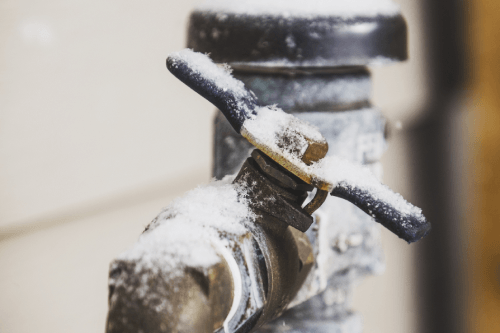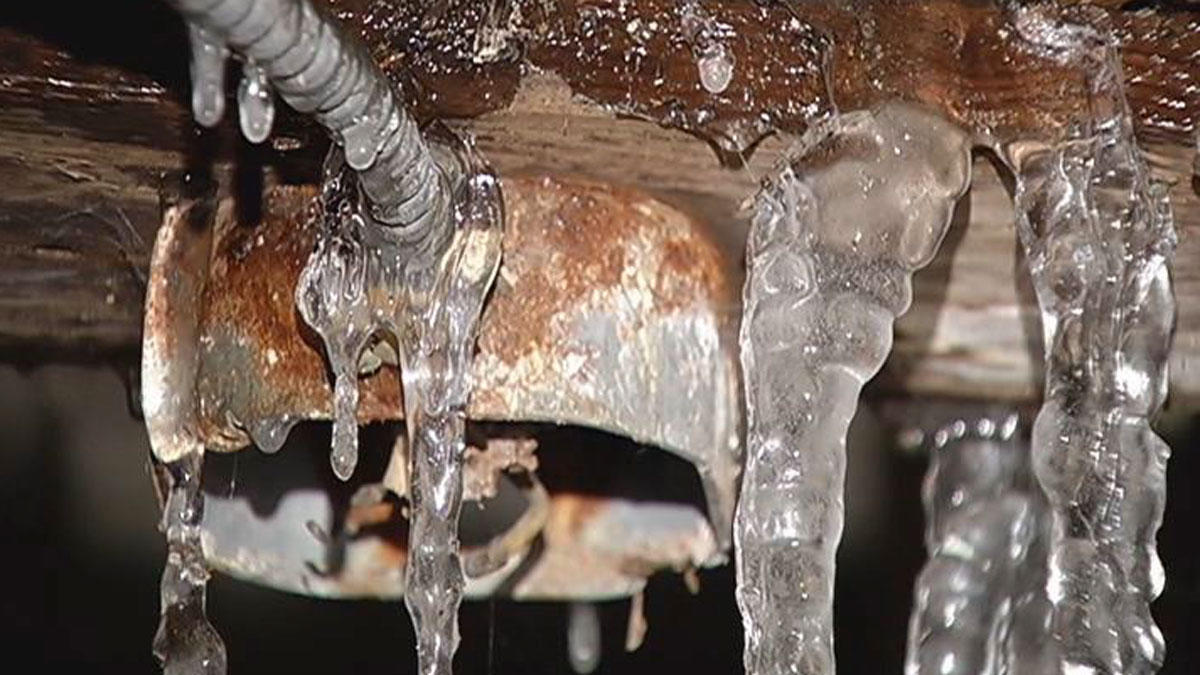Guidance for Avoiding Frozen Plumbing in Cold Weather: Professional Insights
Order RepairJust how do you feel in regards to How To Avoid Freezing Pipes?

Cold weather can damage your pipes, particularly by freezing pipes. Here's just how to stop it from taking place and what to do if it does.
Intro
As temperatures drop, the risk of icy pipelines boosts, potentially leading to pricey repair services and water damage. Understanding how to stop icy pipes is essential for homeowners in chilly environments.
Recognizing Frozen Pipes
What triggers pipes to freeze?
Pipelines ice up when subjected to temperature levels below 32 ° F (0 ° C) for prolonged periods. As water inside the pipelines ices up, it increases, taxing the pipeline walls and possibly creating them to burst.
Dangers and problems
Frozen pipes can cause water supply interruptions, property damage, and expensive repair work. Burst pipes can flood homes and create extensive structural damage.
Signs of Frozen Pipeline
Identifying frozen pipes early can prevent them from bursting.
How to identify frozen pipes
Search for decreased water flow from taps, uncommon odors or noises from pipelines, and noticeable frost on subjected pipes.
Avoidance Tips
Protecting susceptible pipes
Cover pipelines in insulation sleeves or use warmth tape to secure them from freezing temperatures. Concentrate on pipes in unheated or external locations of the home.
Heating techniques
Keep interior spaces effectively heated up, specifically locations with pipes. Open up cabinet doors to allow warm air to circulate around pipes under sinks.
Shielding Exterior Pipes
Yard hose pipes and outside faucets
Separate and drain pipes yard pipes before winter months. Install frost-proof faucets or cover exterior faucets with insulated caps.
What to Do If Your Pipes Freeze
Immediate activities to take
If you presume icy pipes, maintain taps open to alleviate stress as the ice melts. Make use of a hairdryer or towels soaked in warm water to thaw pipelines slowly.
Long-Term Solutions
Architectural changes
Think about rerouting pipelines far from exterior wall surfaces or unheated areas. Include extra insulation to attics, basements, and crawl spaces.
Upgrading insulation
Buy high-grade insulation for pipelines, attic rooms, and wall surfaces. Correct insulation aids keep consistent temperatures and decreases the risk of icy pipes.
Conclusion
Avoiding icy pipes calls for proactive measures and quick actions. By recognizing the reasons, indicators, and safety nets, house owners can protect their pipes during cold weather.
Helpful Tips to Prevent Frozen Pipes this Winter
UNDERSTANDING THE BASICS: WHY PIPES FREEZE AND WHY IT’S A PROBLEM
Water freezing inside pipes is common during the winter months, but understanding why pipes freeze, and the potential problems it can cause is crucial in preventing such incidents. This section will delve into the basics of why pipes freeze and the associated problems that may arise.
THE SCIENCE BEHIND FROZEN PIPES
When water reaches freezing temperatures, it undergoes a physical transformation and solidifies into ice. This expansion of water as it freezes is the primary reason pipes can burst. As the water inside the pipe freezes, it expands, creating immense pressure on the walls. If the pressure becomes too great, the pipe can crack or rupture, leading to leaks and water damage.
FACTORS THAT CONTRIBUTE TO PIPE FREEZING
Low Temperatures: Extremely cold weather, especially below freezing, increases the risk of pipes freezing. Uninsulated or Poorly Insulated Pipes: Pipes located in unheated areas, such as basements, crawl spaces, or attics, are more prone to freezing. Insufficient insulation or lack of insulation altogether exacerbates the problem. Exterior Wall Exposure: Pipes running along exterior walls are susceptible to freezing as they encounter colder temperatures outside. Lack of Heating or Temperature Regulation: Inadequate heating or inconsistent temperature control in your home can contribute to frozen pipes. PROBLEMS CAUSED BY FROZEN PIPES
- Pipe Bursting: As mentioned earlier, the expansion of water as it freezes can cause pipes to burst, resulting in significant water damage.
- Water Damage: When pipes burst, it can lead to flooding and water damage to your property, including walls, ceilings, flooring, and personal belongings.
- Structural Damage: Prolonged exposure to water from burst pipes can compromise the structural integrity of your home, leading to costly repairs.
- Mold and Mildew Growth: Excess moisture from water damage can create a favorable environment for mold and mildew growth, posing health risks to occupants.
- Disrupted Water Supply: Frozen pipes can also result in a complete or partial loss of water supply until the issue is resolved.
WHY CERTAIN PIPES ARE MORE PRONE TO FREEZING
- Location: Pipes located in unheated or poorly insulated areas, such as basements, crawl spaces, attics, or exterior walls, are at higher risk of freezing.
- Exterior Pipes: Outdoor pipes, such as those used for irrigation or exposed plumbing, are particularly vulnerable to freezing as they are directly exposed to the elements.
- Supply Lines: Pipes that carry water from the main water supply into your home, including the main water line, are critical to protect as freezing in these lines can affect your entire plumbing system.
- Underground Pipes: Pipes buried underground, such as those connected to sprinkler systems or outdoor faucets, can be susceptible to freezing if not properly insulated.
https://busybusy.com/blog/helpful-tips-to-prevent-frozen-pipes-this-winter/

I am just very interested in Winter Plumbing Precautions: Preventing Frozen Pipes and I hope you liked my piece. Are you aware of someone else who is inquisitive about the subject? Do not hesitate to share it. I enjoy reading our article about Prevent Frozen Pipes .
Click Here